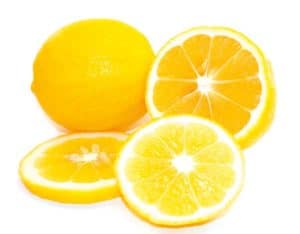Water is an essential nutrient with absolutely no calories, one that is required for our very existence. We can survive only minutes without air and only days without water. Of our total body weight, anywhere from 45% – 75% is made up of water, depending on the amount of body fat we have. Water not only makes up the largest component of our body; it is used continuously by every cell for the following necessary functions to:
- help regulate body temperature
- maintain skin integrity
- promote bowel regularity
- keep joints lubricated
- transport oxygen and nutrients to cells via blood
- surround and fill cells and tissues and cushion internal organs
- prevent fluid retention and edema
We lose over 2 liters of water each day just by being alive through our breath, urine and bowel movements. Since our bodies cannot store water, we need to replace this water loss with water intake. It is recommended that adults consume 64 ounces (2 liters ~ 64 ounces) of water each day or eight 8 ounce glasses of water or other fluids.
For those of us who are trying to eat less and exercise more in an effort to lose weight, drinking 64 ounces of water each day becomes even more important since our fluid needs increase with physical activity and decreased food intake. We get some of our daily water needs met from foods, so when we decrease the amount of foods we eat we need to replace that water. The fact that water has no calories is good news since it can help stave off feelings of hunger! Something important to remember – we can feel hungry when we are really thirsty. This is why it is a great habit to drink a glass of water before you eat if you are working at controlling your weight. Being well hydrated can prevent you from overeating and help you to feel full. If you are losing weight, you are using stored fat for energy. When fat is metabolized for energy, the by-products are flushed through the kidneys and this requires adequate fluid to do so. A good test to tell if you are drinking enough water is if your urine is tinted a light yellow color.
Are your kids drinking enough water?
A recent study demonstrated that children are not drinking enough water. The study found that children were getting much of their water from sweetened beverages rather than from plain water. Those children who drank the most plain water drank fewer sweetened beverages and ate fewer high-calorie foods. Although water is a star-worthy nutrient, remember that it does not get stars since plain water has no calories. Guiding Stars is based on the nutrient content of foods and beverages that provide calories from carbohydrates, proteins and fats.  The most nutritious beverages for children include starred plain low-fat and fat free milks. Drinking milk with meals and snacks is a great way to boost nutrient intake. During the day and between meals, get into the habit of drinking plain water instead of drinking sweetened beverages. To add flavor and visual appeal to plain water, add sliced lemons, limes, oranges or crushed berries.
The most nutritious beverages for children include starred plain low-fat and fat free milks. Drinking milk with meals and snacks is a great way to boost nutrient intake. During the day and between meals, get into the habit of drinking plain water instead of drinking sweetened beverages. To add flavor and visual appeal to plain water, add sliced lemons, limes, oranges or crushed berries.
Bottled and specialty waters have become a booming industry. Gallon for gallon, exotic waters containing calories, sugar, caffeine, vitamins, artificial sweeteners and other ingredients cost more than gas or home heating oil. There is no scientific evidence that many of these ingredients provide the results stated on the label. Why are we so averse to drinking clean, unsweetened water? I know that there is no such thing as a free lunch or free water. If you live in a city, you pay water and sewer bills. If you live in a rural area, you’ve paid to have a well drilled, maintained, and perhaps have a water filter… nonetheless; clean tap water is cheap and really good for you! Unless you are an athlete training for at least an hour or require special fluids for medical reasons, enjoy drinking water for its many health benefits.
About our Nutrition Expert
Lori Kaley MS, RD, LD, MSB is a member of the Guiding Stars Scientific Advisory Panel. Lori has 30 years of combined experience working in healthcare and public health creating policies and environments to help families and children have access to healthy foods and beverages. She is currently Policy Associate at the University of Southern Maine’s Muskie School of Public Service.
Lori’s greatest achievement and joy has been in raising her three daughters to be healthy and productive young adults, each with their own particular love of food, cooking and being physically active. Lori’s passion for nutritional community outreach has been a cornerstone of the Guiding Stars Scientific Advisory Panel. Lori regularly contributes to the Guiding Stars blog.
